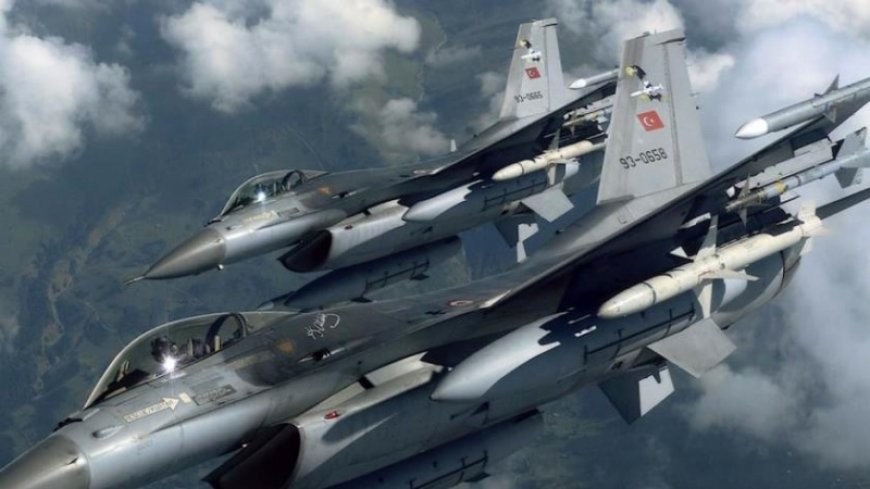A look at the reasons for Turkey's continued air strikes on Iraq and Syria
The Turkish Ministry of National Defense announced that air strikes continue on many headquarters of Kurdish militia groups in the northern regions of Iraq and Syria.

In the statement made by the Turkish Ministry of National Defense, it was said: "In the latest attacks of this country's warplanes, 29 targets belonging to the Kurdish militias, including shelters and weapon depots, were destroyed. These attacks were carried out by the Kurdish militias against the Turkish government and security forces from Northern Iraq and Syria." "It aims to neutralize the attacks against Turkey, ensure border security and kill PKK members in Turkey." Despite the statement of the Turkish Ministry of National Defense, 6 Turkish soldiers were killed in the attack carried out by Kurdish militias in the border region in Northern Iraq recently. It appears that the Turkish military's airstrikes were in retaliation for these attacks by the PKK. As it is known, the Ankara administration has included the Kurdistan Workers' Party (PKK) and the Syrian People's Defense Units (YPG) in the list of terrorist groups and has violated the territorial integrity of these two countries by attacking the northern regions of Iraq and Syria from time to time under the pretext of operations against both groups. It does. In his previous statement, Turkish President Recep Tayyip Erdoğan said, "The army's air strikes against terrorist groups in Northern Iraq and Syria will continue. The Turkish army always keeps the movements of terrorists under control with its air force, artillery units and, if necessary, land elements." Erdoğan's statements were made after the Turkish Grand National Assembly decided to increase the country's military budget by 150 percent in 2024. Therefore, it can be stated with certainty that one of the reasons for increasing the budget of the Ministry of Defense is the continuation of military intervention in Syria and Iraq. Turkey's staggering military expenditures in Iraq and Syria are causing great damage to the economy and livelihood of the Turkish people. In fact, after the economic crisis experienced in this country in the last few years, the problems experienced by the Turkish people have become even more intense. In fact, in an environment where America and its allies, Turkey's allies in the North Atlantic Treaty Organization (NATO), are seen as the main and serious supporters of the Kurds, Turkey's war with the Kurds in this country and the Kurds living in Syria is intensifying under various excuses. Experts believe that most of America's planned missions in the region are carried out by American-friendly Kurdish militias. Despite this, the American government has repeatedly accused Turkish statesmen of organizing terrorist operations against children under the age of 18. In response to this accusation, Turkish newspapers constantly exposed America's policies in the region. For example, last year, Yeni Şafak published the following news in response to America's accusations against Turkey that children under the age of 18 were being used as soldiers: "The main factor behind the formation of ISIS and the use of children in terrorist organizations is America." Apparently, Ankara politicians are trying to expand Turkey's political and military sphere of influence from this country's territory to neighboring countries. It can be thought that the purpose of this action is to cause less damage to the Turkish economy. The Turkish government is also trying to establish special economic and political cooperation with the Kurdistan Autonomous Republic of Iraq, while at the same time fighting the Kurdish militias in Syria and Iraq. The illegal presence of Turkish troops in the northern regions of Iraq and Syria has always faced harsh reactions and opposition from the people and governments of these two countries. The governments of Iraq and Syria also consider Ankara's occupation as a clear example of occupation. The United Nations has always emphasized stopping Turkey's attacks against Syria and Iraq. Despite this, the Turkish army's military attacks against two neighboring countries, namely Syria and Iraq, continue to increase and will undoubtedly continue in the coming year./













































